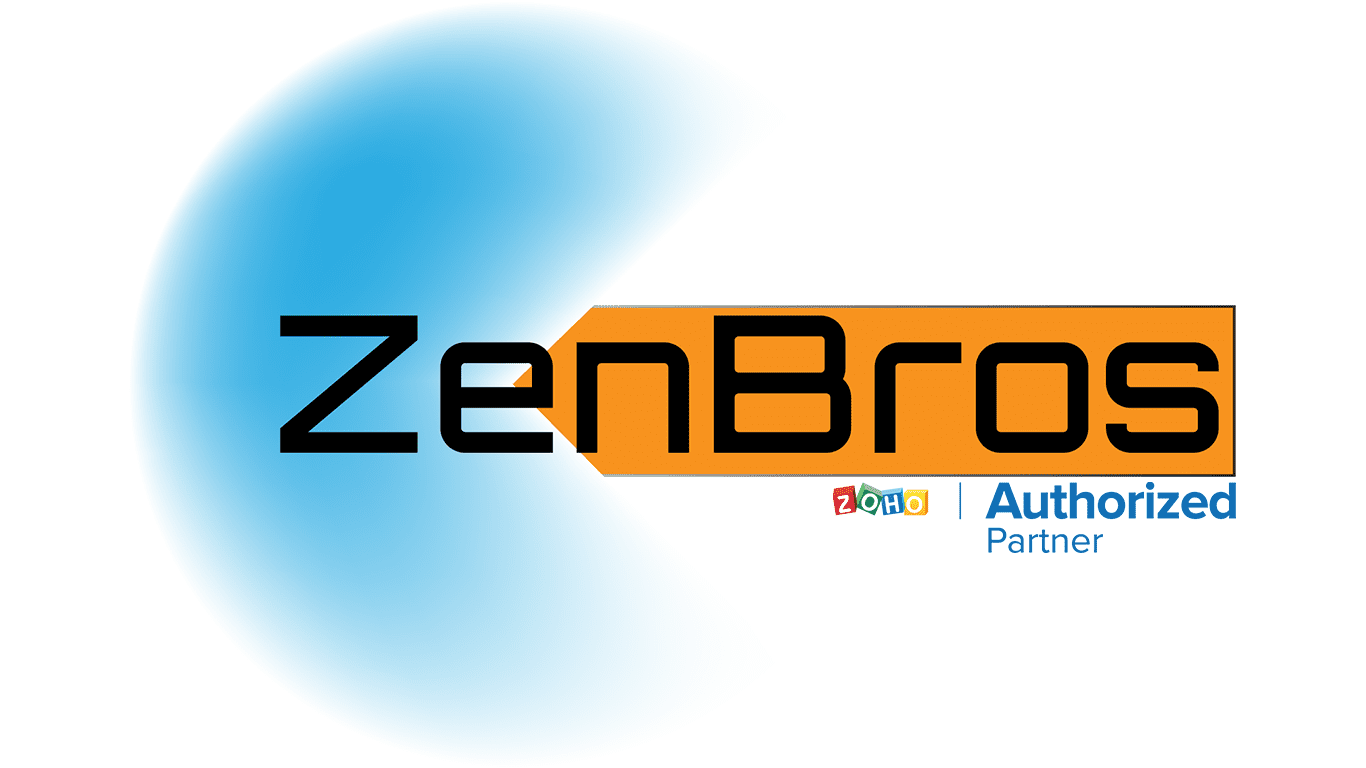What is CRM?
Trying to get an understanding of what CRM can do for your business? Here's a complete overview for you to get started easily.

Defining CRM
An acronym for Customer Relationship Management, CRM is a term that was initially defined and designed to improve customer service. Today, though, it relates to an entire business strategy. CRM software acts as a single repository to bring your sales, marketing, and customer support activities together, and streamline your process, policy, and people in one platform.
Why businesses choose CRM software

The 8 essential building blocks of CRM

Watch out for these indicators
Whether you’re a small business looking for a place to store information and have it accessible across multiple devices, or you’re a large business wanting to manage customer interactions and focus on improving customer satisfaction, eventually you're going to need a Customer Relationship Management (CRM) software, if your current process is unable to find solutions to these pressing problems.
Here is an example of how CRM can save you time.
Below is a compiled question, answered with one solution..
" What is the total number of customers that we've touched this month? How many have we won or lost? What is the Gross Sales Amount for the ones that we've won, and what is my Total Gross Sales amount? "
Spend less time trying to understand the interface
While Zoho CRM's "Reports" functionality is really fantastic in itself, it makes more sense to demonstrate the view seen by an "Active Salesperson" or Account Representative.
The above screenshot shows an example of "Deal Stages", in a Kanban (drag-and-drop) view. You can easily see the industry, potential sales amount, the current status of the potential deal in the pipeline, the person assigned to that Deal, the overall total potential gross.
...and this is just for the default view.
Nearly everything within Zoho CRM can be tailored to fit the needs of your organization.

Accuracy of Data
Bad decisions come from bad data. Failure to check the accuracy of data entering your system is a real cause of concern. Once you have a validation scheme with automated data entry, the inflow of incorrect information can be prevented before it causes you any trouble.
In the example, a Sales Rep accidentally input a discount above what is allowed.
Thanks to Custom Validation Rules, the sales rep was alerted to the error and was able to correct it before submitting the deal.

Communication is Key

Connecting with Customers
Customers can come from a variety of mediums—websites, social media, phone calls, etc.— and only a multi-channel communication system can bring them closer to your business and lets you cover all customer touch-points that are relevant to your selling process.
Personalizing marketing efforts
Your marketing endeavors can simply go down the drain if your methods are not attracting prospects to try out your service. Tasks like sending out promotions, newsletters, etc. can be personalized to ensure that it connects with every customer on a personal level.
Bringing teams together
When every team is an island of their own, it becomes a massive bottleneck for any organization to grow. Real-time customer information cannot be shared across teams which in turn affects the way you serve your customer needs.
Who uses CRM systems?
Customer relationship management systems can be easily customized to meet the specific needs of any business type and size. Start-ups, large enterprises, and verticals like real-estate, healthcare, insurance, legal, media, restaurants, travel, banking, tax, freelancers, and non-profits all use a customer relationship management software for increasing their sales, marketing, and customer support efforts.
B2B
From managing an account's contact information to staying up to date with business deals, payments, and reports, B2B companies do best with a sales CRM in place. It helps them create a common platform to keep their partners, vendors, and other stakeholders of their business in sync with each other.
B2C
B2C companies have shorter customer life cycles, and they typically require a solution that is more direct and less time-consuming. A multi-channel CRM tool with features like pipeline management, sending out instant surveys, marketing automation, etc. helps B2Cs reach out to their customers more easily.
SMBs
SMBs aren't small and medium businesses but smart and modern businesses. There's no truth to the common misconception that cloud CRM is too expensive and complicated for SMBs. They can always start their CRM journey with a free CRM software. By being a great technological leveler, CRM system provides SMBs with a level playing field and the ability to compete against the bigger players in their industry.
Enterprises
With advanced CRM features like workflow management, advanced analytics, territory management, sales and marketing automation, enterprise CRM software can help reduce the time salespeople spend on mundane tasks, have more time to concentrate on their customers and unify their operations across multiple geographic locations.
Benefits of using a CRM system
Use this paragraph to describe what you do. This is a great place to let your visitors know who you are. Add useful information that your users may find interesting Use this paragraph to describe what you do.
- Centralized Information
- End-to-End customer engagement
- Data-Driven Business
- Reduced overhead costs
- Effortless team collaboration
- More time selling
- Less time organizing data
Operational Excellence
Having a CRM solution that is customized to your business allows your team to perform in a streamlined, communicative, organized and efficient manner.
Your customers will notice the difference.
Average Benefits received from using CRM
Use this paragraph to describe what you do. This is a great place to let your visitors know who you are. Add useful information that your users may find interesting. What makes you stand out?
300%
Improvement in lead conversion rates
41%
Increased Revenue per salesperson
27%
Improvement in customer retention
24%
Decreased sales cycles
23%
Decreased sales and marketing costs
Key features of CRM software

Lead Management
If getting quality leads is one thing, tracking and managing them to deal closure is another. CRM offers you everything that you need to know about your leads to convert them into happy, paying customers. With lead scoring and automated lead assignment, you can assign leads based on a variety of parameters and know which leads have the highest chance of moving down the pipeline.
Contact Management
Contact management features in CRM help you organize your business contacts in one place. You'll know when and why you contacted a customer the last time, the best time to reach them, mentions from social media interactions, and analytics to reach customers through email and other forms of communication.

Deal Management
A deal once lost is lost forever. The deal management features in CRM gives you the complete picture of your current and future deals, and lets you know what went wrong with your past unsuccessful ones. CRM allows you to segment deals based on their current stage in the pipeline and can tell you the probability of winning any deal.
Email Management
Email management is a core function to any business and an online CRM solution lets you take complete control of it. Any email client that you use can be integrated with your customer relationship management tool, which means you save time switching between tabs to get work done. Email management system inside a CRM lets you prioritize emails, analyze the response to every email, and ensures you have thorough follow-ups with your receivers.

Reporting and Analytics
An analytics-driven business culture can go a long way in transforming your organization's decision-making style from "gut feeling" to "data-driven." CRM software offers businesses the necessary intelligence to process data from various sources and churn out valuable insights to guide them with data. From basic charts to advanced analytics insights, such as spotting anomalies in your business, an inbuilt analytics engine inside CRM can help enterprises gain a crucial competitive advantage.

Marketing Automation
Often companies find themselves wasting their marketing budget due to poor planning and the failure to identify the real target audience for their brand. A disconnect between sales and marketing teams can hamper these efforts. With a Marketing CRM with built-in marketing automation and campaign management features, you can generate new leads, execute targeted email marketing campaigns, compare ad spending to sales revenue, and ultimately get the maximum ROI on your marketing spend.
Customization
There is never a one-size-fits-all approach when it comes to implementing a CRM platform for your business. If there is any business software solution on the market that can be truly customized to the way your business works, it has to be a CRM system. You can customize your CRM with custom functions, buttons, modules, fields, and layouts, or even build a CRM entirely from scratch with offerings unique to your business vertical.
Mobile CRM
At a time when global mobile usage has overtaken desktops, it is vital that your CRM system allows your workforce to go completely mobile. Mobile CRM helps sales reps close more deals on the go. It allows managers to add and update data when they shuttle between multiple business appointments, and even when they are offline. Trade shows, business meetings, networking events, both in flight and on the road, mobile CRM apps help you be business-ready no matter where your business takes you.

